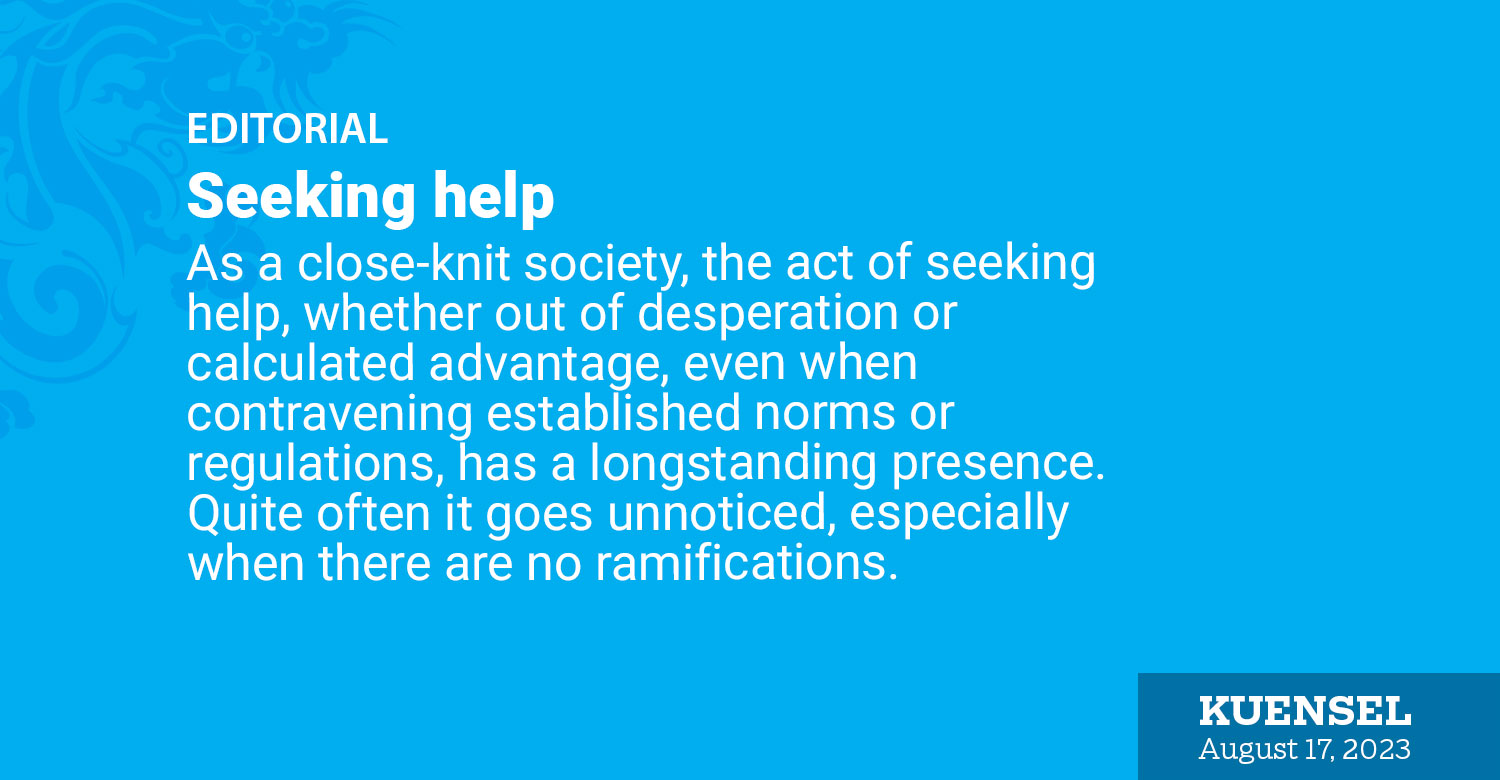As a close-knit society, the act of seeking help, whether out of desperation or calculated advantage, even when contravening established norms or regulations, has a longstanding presence. Quite often it goes unnoticed, especially when there are no ramifications.
This is evident in the eyes or body language of those waiting to get a “token” to see a doctor without direct access, if not someone trying to shake off a traffic penalty, or calling “dasho” to stop the “posting” from Thimphu to Pemagatshel or vice versa. What we say, calling the shots or seeking help from those in power or authority, is an integral part of our life.
If we are honest with ourselves, the pursuit of aid to reshape decisions emerges as an integral facet of our identity. Although not visible, it is a daily, ubiquitous undercurrent and it is everywhere. In other words, relationships matter a lot. It is so common in everyday life or decision-making.
We do not have a term for it, probably because of the secrecy surrounding it. But it is no different from what academicians call it, Guanxi, a Chinese term, referring to having personal trust and a strong relationship with someone, and can involve moral obligations and exchanging favours.
In Western culture, it is seen as unethical behaviour associated with corruption, influence or misuse of connections. It is a part of life on this side of the world. Guanxi can also be used to describe a network of contacts, which an individual can call upon when something needs to be done, and through which they can exert influence on behalf of another.
There is no research, but what happens in Bhutan is not different from the Guanxi, if not more blatant.
Guanxi is integrated in all aspects of our lives. For instance, not to deride the wisdom of Bhutanese voters, Bhutanese voters largely align, or a coordinator can influence voters to vote for a party for something in return, even if it is not personal.
Reciprocity is the essence of Guanxi. There is an obligation to return the favour. It’s why villagers place importance on keeping distant relatives in the “zhung” happy. That is why we get calls to give internship certificates for no internship done, work experience certificates for no work done and many more.
As long as it does not come in conflict with laws, those with networks will try to help. Those without an Asha Dasho or a rich relative in Thimphu are the losers. The Chinese define Guanxi as “connections”, “relationships” or “networks”. It is also used to describe a network of contacts, which an individual can call upon when something needs to be done, and through which they can exert influence on behalf of another.
How different are we? What is our term for Guanxi? A researcher translated it as “thuenlam” (connections).


